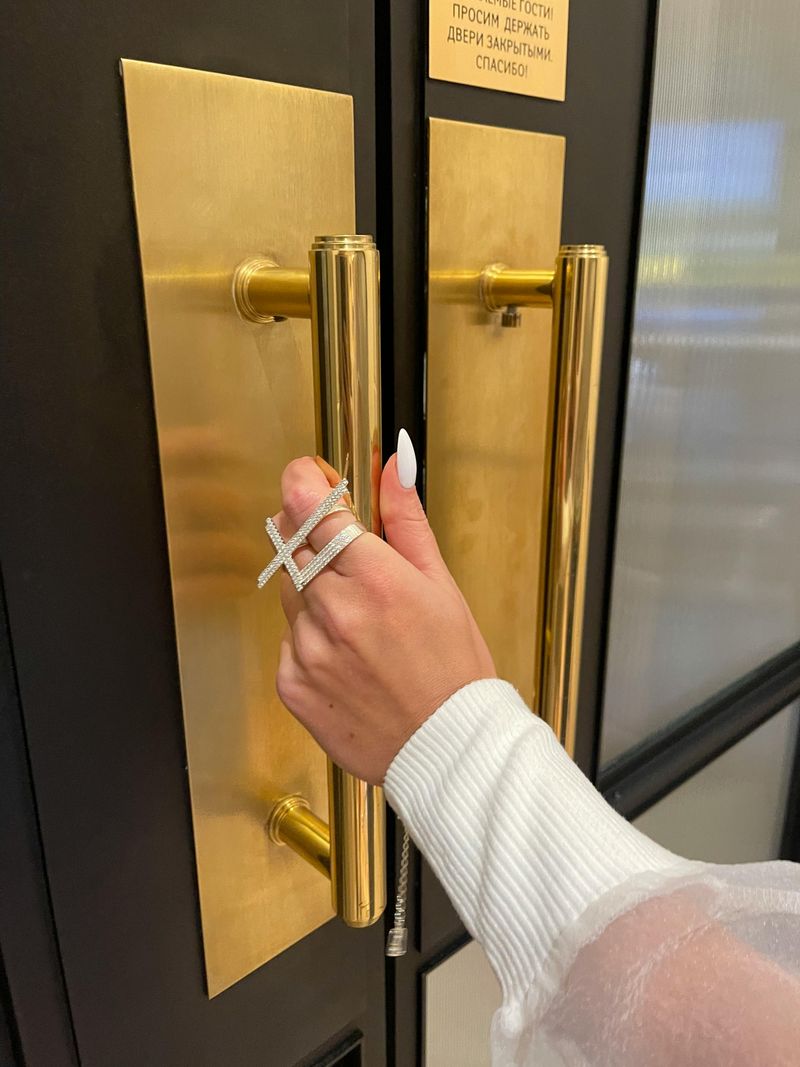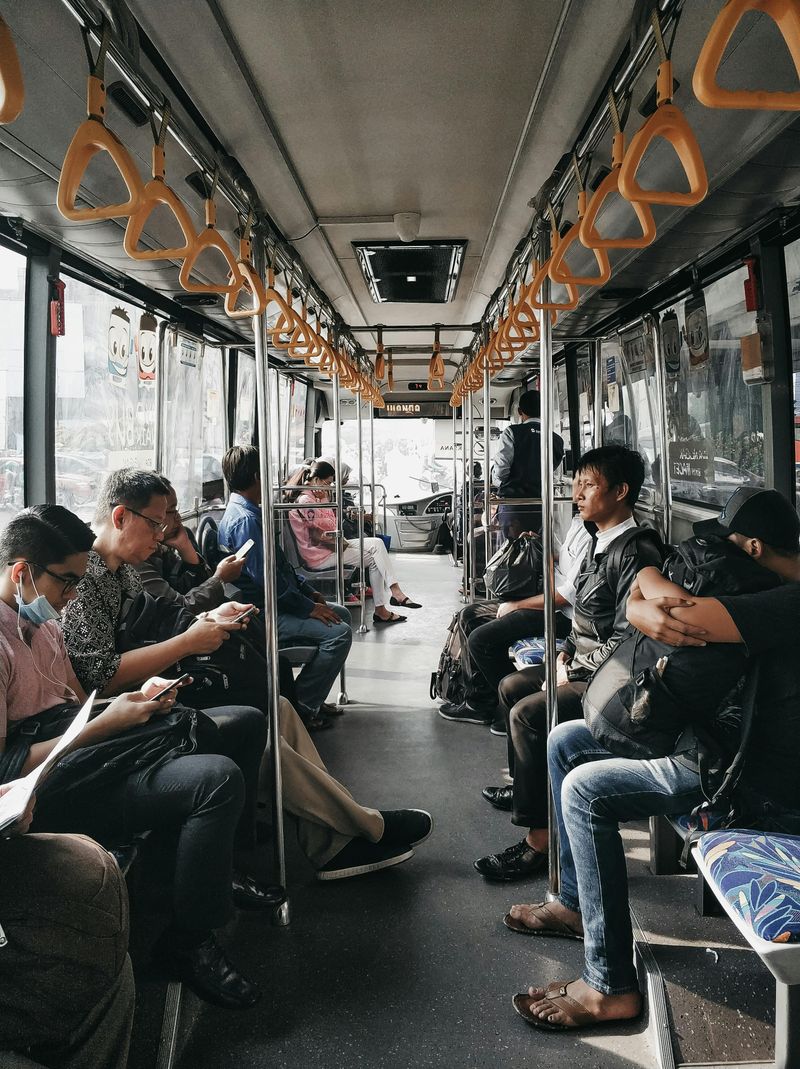Good manners might seem old-fashioned, but they still matter in today’s world. Recognizing rude behavior shows you were taught important social values that help create a respectful society. Your parents or guardians instilled these principles in you, and now they’re part of who you are. Let’s explore twelve habits that polite people find offensive – if you agree with these, it’s a sign you were raised with proper etiquette.
1. Interrupting Others Mid-Sentence

Cutting someone off while they’re speaking shows a lack of respect for their thoughts and opinions. Well-mannered people understand the value of listening fully before responding.
Patience during conversations allows everyone to feel heard and valued. This simple courtesy creates more meaningful exchanges and demonstrates emotional intelligence.
When you cringe at being interrupted or feel uncomfortable doing it to others, that’s your good upbringing shining through. Your caregivers taught you that everyone deserves their moment to express themselves completely.
2. Neglecting to Say Please and Thank You

Magic words aren’t just for children – they’re fundamental expressions of gratitude and respect. When someone helps you, acknowledging their effort with sincere thanks acknowledges their kindness.
Similarly, using “please” transforms demands into requests, softening your approach and showing consideration. These small words create big differences in how your communication is received.
If you automatically use these expressions and feel uncomfortable when others skip them, your upbringing emphasized the importance of acknowledging others’ humanity through basic courtesy.
3. Checking Your Phone During Conversations

Smartphones have created a new form of rudeness that proper upbringing teaches us to avoid. Glancing at notifications while someone is speaking sends a clear message: whatever’s on your screen matters more than the person in front of you.
People with good manners recognize this behavior as disrespectful. They make a conscious effort to keep devices tucked away during face-to-face interactions.
Your discomfort when someone checks their phone mid-conversation reflects valuable lessons about giving others your full attention – a sign of respect that technology hasn’t made obsolete.
4. Arriving Late Without Notice

Time is valuable, and making others wait without warning demonstrates a lack of respect for their schedule. Well-mannered individuals understand that punctuality is a form of consideration.
When unavoidable delays occur, properly raised people immediately notify others and apologize sincerely. They recognize that tardiness can disrupt plans and cause inconvenience.
Your frustration when people casually stroll in late without acknowledgment shows you were taught to value others’ time as much as your own – a fundamental principle of respectful behavior.
5. Leaving Messes for Others to Clean Up

Abandoning your trash at a restaurant table or theater reveals volumes about your upbringing. Considerate people understand that someone else shouldn’t have to handle their mess.
Whether stacking plates to help servers or disposing of your own trash at fast-food restaurants, these small actions demonstrate awareness of others’ work. Good parents teach children to leave spaces better than they found them.
When you automatically clean up after yourself and feel uncomfortable watching others leave their messes behind, it reflects important lessons about responsibility and respect for service workers.
6. Failing to Hold Doors for Others

That instinct to hold the door for someone walking behind you isn’t just politeness – it’s thoughtfulness in action. This simple gesture acknowledges another person’s presence and needs.
Properly raised individuals perform this courtesy without thinking, regardless of the other person’s age, gender, or status. They understand it’s not about chivalry but basic human consideration.
Your discomfort when someone lets a door slam in another’s face reveals your internalized values about helping others with small kindnesses. This awareness of others’ physical space and comfort is a hallmark of good upbringing.
7. Talking During Movies or Performances

The darkened theater becomes a shared space where everyone has paid for an experience. Chatting during performances disrupts this collective moment and demonstrates self-centeredness.
Well-mannered people understand that their commentary, no matter how clever or quiet they think it is, interferes with others’ enjoyment. They save conversations for appropriate times.
Your annoyance when someone whispers throughout a film reflects respect for both the performers’ work and fellow audience members’ right to enjoy it undisturbed – values instilled through proper upbringing.
8. Forgetting to RSVP to Invitations

Event planning requires knowing who’s attending, making RSVP responses crucial for hosts. Ignoring this request creates unnecessary stress and potential waste.
Properly raised individuals understand that responding promptly shows respect for the host’s efforts. They recognize that their simple “yes” or “no” allows for appropriate food preparation, seating arrangements, and other accommodations.
Your discomfort when realizing you’ve forgotten to respond to an invitation demonstrates awareness of social responsibilities. This consideration for others’ planning needs reflects values that prioritize thoughtfulness in social interactions.
9. Not Offering Seats to Those Who Need Them

Public transportation and waiting areas become tests of character when seating is limited. Noticing someone who needs a seat more than you do – and offering yours – demonstrates awareness beyond self-interest.
People with good upbringings automatically scan for elderly individuals, pregnant women, or those with physical challenges who might benefit from sitting down. This heightened awareness of others’ needs reflects compassionate values.
Your discomfort when watching able-bodied passengers remain seated while someone struggles to stand reveals internalized lessons about prioritizing others’ physical comfort – a sign of considerate upbringing.
10. Talking Loudly on Phones in Public

Mobile phones have created new opportunities for inconsiderate behavior in shared spaces. Broadcasting personal conversations forces unwilling listeners to become part of your private world.
Well-mannered individuals understand that modulating their volume shows respect for others’ right to peaceful environments. They step aside for necessary calls or keep conversations brief and quiet.
Your discomfort when someone conducts loud business or personal calls in restaurants, waiting rooms, or public transportation reflects values about shared spaces. This awareness of how your actions affect others’ experiences demonstrates thoughtful upbringing.
11. Failing to Acknowledge Mistakes with Apologies

Everyone makes mistakes, but properly raised individuals know what comes next: a sincere apology. Refusing to acknowledge errors shows a concerning lack of accountability.
Good manners include taking responsibility when you’ve inconvenienced or hurt someone else. This simple act demonstrates maturity and respect for others’ feelings.
Your discomfort when someone brushes off their mistakes without apology reflects values about personal responsibility. The urge to make things right after errors, rather than defending or ignoring them, shows character-building lessons from your upbringing.
12. Not Respecting Personal Space

The invisible bubble surrounding each person varies culturally but remains important everywhere. Invading this space without invitation – standing too close in lines or touching without permission – creates discomfort.
Well-mannered people naturally maintain appropriate distances and respect physical boundaries. They understand that personal space is connected to psychological comfort and dignity.
Your discomfort when someone unnecessarily crowds you reflects awareness of important social boundaries. This recognition of others’ right to physical comfort demonstrates respectful upbringing that taught you to consider how your presence affects those around you.

Comments
Loading…